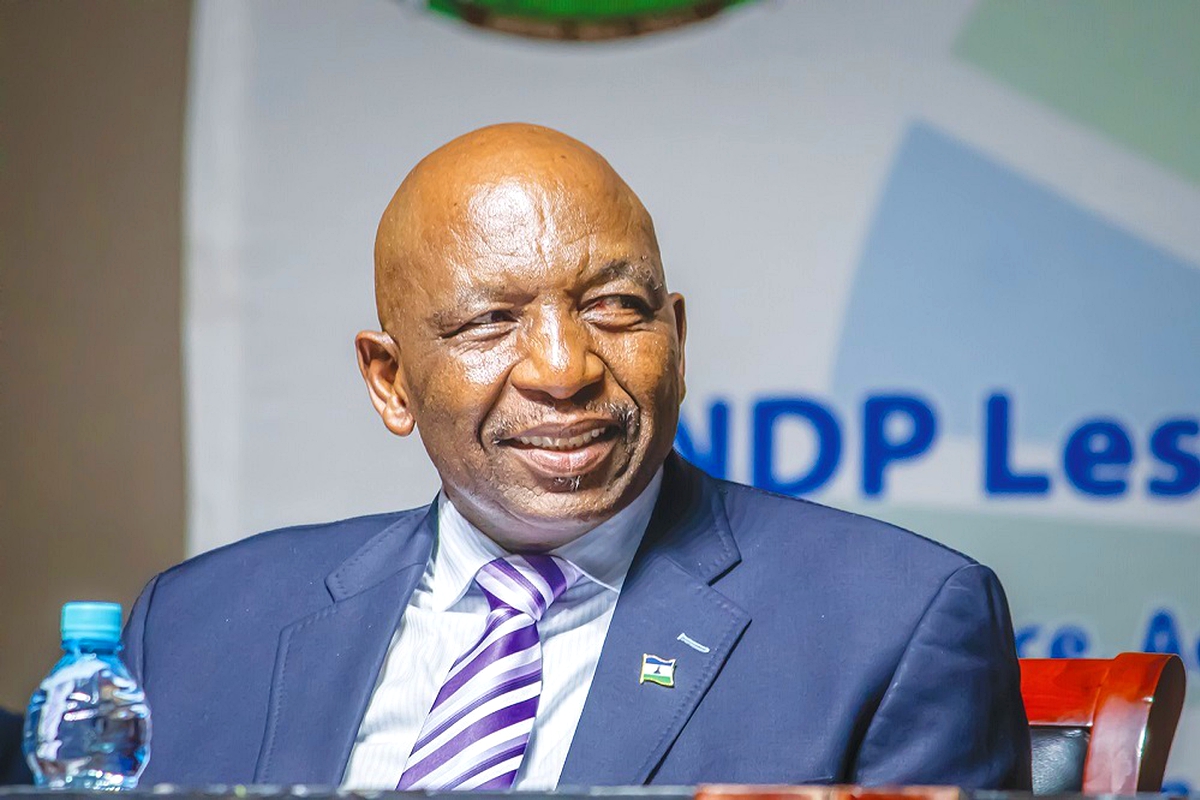THE government has pledged to support Basotho businesses that have significant potential in the textile and apparel industries, despite continued issues with restricted access to finance, high transportation costs, and a lack of skills, among other hurdles.
business
June 27, 2023
NEO SENOKO
4 min read
Govt makes big promises about textile, apparel industries

Prime Minister Sam Matekane
Story highlights
The sector, which is by far the largest private sector employer in Lesotho, was adversely affected by the impact of COVID-19, resulting in a couple of firms closing while hundreds and thousands of people lost their jobs.
Despite playing host to the textile sector for almost two decades, the percentage of Basotho owners in the sector is almost close to nothing, with just a few individuals pushing for a breakthrough.
With USD 52.5 million (M965 209 875 00) in financing from the World Bank, the textile and apparel industry has been targeted as one of the main beneficiaries, with a direct focus on promising Basotho enterprises.
The financing comes under the Competitiveness and Financial Economic Programme (CAFI) that was introduced by the government in April.
The total budget of the project is USD 52.5 million (M965 209 875 00), comprising USD 45 million (M827 100 900 00) as a loan from the World Bank and USD 7.5 million (M137 786 025 00) as a grant from the Global Risk Financing Facility (GRIF) to strengthen the resilience of the Lesotho private sector to climatic shocks.
“The second pillar is increasing the participation of Small and medium-sized enterprises in high-potential value chains. Our specific focus in this context is on one sector that creates employers in the private sector, which is the textile and garment industry.
“The sector was adversely affected by the impact of COVID-19. We seek to revitalise this sector, and special attention will be paid to promoting Basotho enterprises in this particular sector. We are going to ensure that Basotho businesses participate in global value chains,” CAFI Project Manager, Chaba Mokuku said recently.
The growth of the textile industry in Lesotho can be traced back to the early 2000s and is largely the result of the African Growth and Opportunities Act (AGOA), a United States trade agreement that gives eligible African countries duty-free access to its markets.
In recent years, it has felt the effects of the slowdown in the US, coupled with uncertainty over whether the agreement will be renewed in its current form and increasing competition from countries such as Vietnam and Bangladesh.
The industry employs around 40 000 workers, which, however, is below its early 2000s peak of about 54 000 workers.
Since the 2020 COVID-19 pandemic in Lesotho, the industry has been suffering a huge decline in employment due to a number of firms struggling to survive. To date, firms remain closed, with others struggling to keep going.
Arguably, the promises that are being made by the government towards revitalising the sector are neither here nor there, considering a series of developments over the years.
Governments have always made empty promises regarding the sector, let alone ensuring the inclusion of Basotho entrepreneurs in it.
Enjoy our daily newsletter from today
Access exclusive newsletters, along with previews of new media releases.
The government has relied too much on foreign investors and done too little for its own development and local skills.
Prime Minister Ntsokoane Sam Matekane has, however, emphasised his commitment to fostering an entrepreneurial culture to ignite the flames of support for future business leaders.
“We have taken significant strides in this direction through the CAFI project, which seeks to create a knowledge and financial allocation infrastructure that will provide invaluable support to our small and medium enterprises,” Matekane said recently during the launch of the Lesotho Entrepreneurship Hub and Seed Financing Facility.
The contribution of the textile industry to the country’s economy goes beyond the sector itself.
There are important employment and economic multipliers. A range of formal and informal sector activities such as the small packaging industry, road freight transporters, courier services, cleaning agents, security, and traders that sell food to workers, among others.
As a result, a continuous decline in the sector is not only affecting direct players but also those that make a living through other opportunities that are presented by the sector.
Tailored for you






